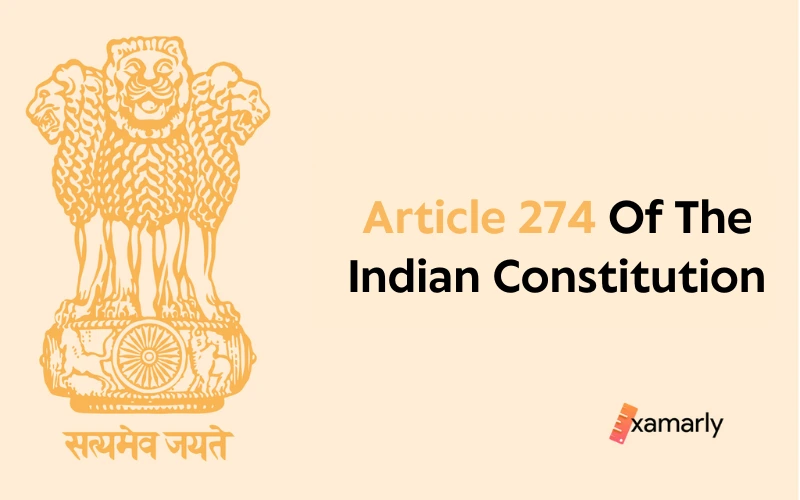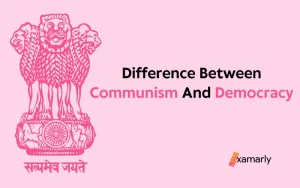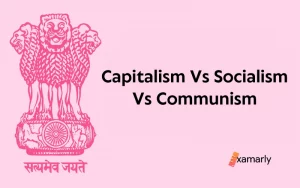An Overview
Welcome to our blog on Article 274 of the Indian Constitution and its relation to Presidential recommendation for Bills affecting taxation in the States.
Article 274 of the Indian Constitution lays out the process by which Bills affecting taxation in the States must be presented to the President of India for his recommendation before they can become law. This important provision ensures that the President has the opportunity to review and comment on legislation that may have a significant impact on the States and their citizens.
In this blog, we will delve into the specifics of Article 274 and its implications on the relationship between the Central government and the States in India. We will examine the background and clauses of the article, its interpretation, and some frequently asked questions.
Whether you are a student of Indian politics, a Civil Services aspirant, or simply someone with an interest in how the Indian government functions, we hope you will find this blog informative and engaging.
- An Overview
- What Does Article 274 Of The Indian Constitution Talk About?
- Background Of Article 274 Of The Indian Constitution
- Clause (1) Of Article 274 Of The Indian Constitution: Explained
- Clause (2) Of Article 274 Of The Indian Constitution: Explained
- Summing Up
- FAQs Related To Article 274 Of The Indian Constitution
- What Is The Meaning Of Prior Recommendation Of The President In Regards To Taxation Bills?
- What Kind Of Bills Are Affected By The Prior Recommendation Of The President?
- Who Can Make The Recommendation Of The President?
- How Does The Prior Recommendation Of The President Affect The Passage Of A Bill?
- Is The Recommendation Of The President Binding On The Parliament?
What Does Article 274 Of The Indian Constitution Talk About?
Article 274 of the Indian Constitution talks about the need of prior recommendation of the President of India in cases of such Bills that have an effect on the taxation of the concerned States.
“Prior recommendation of the President” means that before any Bill affecting taxation is introduced in the Parliament, it must first be recommended by the President of India. This requirement is intended to ensure that the Central government consults with the State governments and takes their views into account before introducing any Bill affecting taxation in which the States have an interest.
This can include Bills that can alter the division of revenue between the Union and the States or that affect the powers of the States to impose taxes.
So, in simple terms, the approval of the President of India is necessary before introducing any Bill pertaining to taxation which has an impact on the States in the Parliament.
Background Of Article 274 Of The Indian Constitution
To begin with, let us take a brief look at a background of Article 274.
- Article 274 of the Indian Constitution was formulated from the Draft Article 254A.
- The Draft Constitution of India from 1948 did not contain the Draft Article when it was first written. However, the Chairman of the Drafting Committee proposed to include it.
- This Draft Article was debated in the Indian Constituent Assembly on August 8, 1949.
- According to the article, it is impossible for any Bill or modification concerning the taxes or charges in which the States of India have an interest to be tabled in the Parliament without first receiving a recommendation from the President of India.
- During the debate related to this article in the Constituent Assembly, there were some objections raised. A member of the Assembly opposed this Draft Article. He was of the opinion that the Draft Article attempted to violate the authority of the States. Another member raised an objection to the Draft Article stating that it violated the inherent right of the Members of the Parliament.
- Despite the opposition, there was no further discussion on the Draft Article. It was adopted into the Constitution of India on August 8, 1949.
Clause (1) Of Article 274 Of The Indian Constitution: Explained
274. Prior recommendation of President required to Bills affecting taxation in which States are interested.
(1) No Bill or amendment which imposes or varies any tax or duty in which States are interested, or which varies the meaning of the expression “agricultural income” as defined for the purposes of the enactments relating to Indian income-tax, or which affects the principles on which under any of the foregoing provisions of this Chapter moneys are or may be distributable to States, or which imposes any such surcharge for the purposes of the Union as is mentioned in the foregoing provisions of this Chapter, shall be introduced or moved in either House of Parliament except on the recommendation of the President.
The first clause of Article 274 lays emphasis on the fact that any Bill or amendment that is related to taxes or money distribution between the Central government and the State government needs a recommendation for being moved in the Parliament.
Specifically, it states that these types of laws cannot be introduced or proposed in the Indian Parliament, either the Lok Sabha or the Rajya Sabha, unless they are first recommended by the President of India.
Further, such Bills or amendments cannot impose or change taxes or duties in which the States have an interest or cannot change the meaning of the term “agricultural income” as it relates to Indian income taxes.
In addition to that, they cannot change the principles for how money is distributed to the States. Also, they cannot impose surcharges for the benefit of the Union government.
In simple words, the provision held in clause (1) of Article 284 of the Indian Constitution states that the Bills or amendments that are related to taxation, imposing or altering taxes, distribution of money and surcharges that has an impact on the States, need the recommendation of the President of India before it is moved in the Parliament.
Clause (2) Of Article 274 Of The Indian Constitution: Explained
(2) In this article, the expression “tax or duty in which States are interested” means—
(a) a tax or duty the whole or part of the net proceeds whereof are assigned to any State; or
(b) a tax or duty by reference to the net proceeds whereof sums are for the time being payable out of the Consolidated Fund of India to any State.
The second clause of Article 274 defines the meaning of the phrase “tax or duty in which States are interested” as it is used in the article. It explains that this phrase refers to a tax or a duty where all or part of the money collected is handed over to a State government.
In addition to the above meaning, it also refers to a tax or a duty where money is currently being paid out of the Consolidated Fund of India to a State government.
In simple terms, the phrase mentioned in clause (2) means taxes or duties whose revenue or proceeds are assigned or payable to any State government in the Indian Union out of the Consolidated Fund of India are considered as taxes or duties in which the States are interested.
You Might Also Like:
| Article 270 Of The Indian Constitution | Article 271 Of The Indian Constitution |
| Article 272 Of The Indian Constitution | Article 273 Of The Indian Constitution |
Summing Up
After thoroughly going through the clauses of Article 274 of the Indian Constitution and its explanation, we can come up with a few key learnings. They have been listed below.
- Article 274 of the Indian Constitution states that before any bill affecting taxation is introduced in the Parliament, it must be first recommended by the President of India. This is to ensure that the Union government consults with the State governments and takes their views into account.
- Any Bill or amendment must not impose or change taxes or duties in which the States have an interest, or alter the definition of the term “agricultural income” as it relates to Indian income taxes, or change the principles of money distribution to the States or impose surcharges for the benefit of the Union government.
- Additionally, Article 274 defines the phrase “tax or duty in which States are interested” as a tax or duty where all or part of the money collected is given to a State government or a tax or duty where money is currently being paid out of the Consolidated Fund of India to a State government.
FAQs Related To Article 274 Of The Indian Constitution
What Is The Meaning Of Prior Recommendation Of The President In Regards To Taxation Bills?
Prior recommendation of the President means that before any Bill affecting taxation is introduced in the Parliament, it must be first recommended by the President of India. This requirement is intended to ensure that the Central government consults with the State governments and takes their views into account before introducing any bill affecting taxation in which the States have an interest.
What Kind Of Bills Are Affected By The Prior Recommendation Of The President?
Any Bill that affects taxation in which the States have an interest requires the prior recommendation of the President of India. This includes Bills that alter the division of revenue between the Union and the States or that affect the powers of the States to impose taxes.
Who Can Make The Recommendation Of The President?
The recommendation of the President is usually made by the Union Cabinet, after consultation with the State governments and other relevant stakeholders. The Cabinet can also recommend the President to withhold its assent to any Bill that has been passed by the Parliament.
How Does The Prior Recommendation Of The President Affect The Passage Of A Bill?
The prior recommendation of the President is a necessary step before a Bill affecting taxation can be introduced in the Parliament. If the President does not recommend a Bill, it cannot be introduced in the Parliament. The recommendation of the President is not a guarantee of the passage of any Bill, but it is a necessary step in the process.
Is The Recommendation Of The President Binding On The Parliament?
The recommendation of the President is not binding on the Parliament. The Parliament may still decide to introduce and pass the bill, even if the President does not recommend it. However, it is considered to be a step in the process and it is more likely that a Bill will be passed if the President recommends it.






